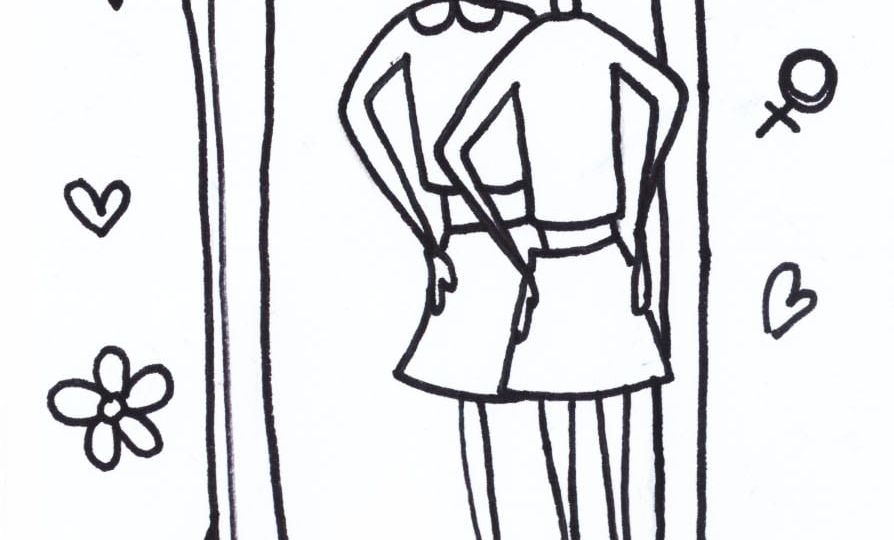
Most people would agree that young people have ample time to explore their identities in college. While it may sound like a calm, peaceful process, the word “explore” hardly does justice to the nights of pain, mornings of headaches and heartbreaks and days of drudgery. “Finding your identity” is anything but a passive process. It is painfully active, characterized by learning to understand the nature of vulnerability with others and making many mistakes along the way.
Yet it seems that once the doors close on that fourth year of college, most people have it figured out. They finally completed their major after switching three or four times, settled into a group of friends that cares about and supports them and gained at least a hazy picture of what the future will bring. It all seems to makes sense, doesn’t it? Most college first years come in with nervous anticipation and finish their undergraduate years with a firmer hold on themselves and on reality.
However, a recent study at Boston College seems to contradict this idea. The study, administered by the Office of Institutional Research, Planning and Assessment at Boston College, focused on two surveys taken by female students: one during their first year and the other while finishing their senior year. Despite reports of high academic achievement from many of the women in the second survey, most respondents gave themselves weaker self-evaluations.
Is this cause for surprise? This nature of women’s self-esteem probably is not, as many females struggle with self-esteem issues throughout college, manifested visibly through a variety of eating disorders, and high rates of general anxiety and depression. Yet is the timing of this “weakened self-esteem” cause for concern? Perhaps, but perhaps not. Let me explain.
The undergraduate years are supposed to prepare individuals to contribute to the world. No matter what sector they enter and in what capacity, most students will gain the critical thinking skills needed to function in the “adult world” from college. Most of these lessons actually take place outside the classroom.
During college, students learn just as much from social interactions with their fellow students as from lectures that discuss “social interactions” and psychology. In this way, the college experience itself is a laboratory for students to study and experiment in their environment.
Women in particular seem quite vulnerable in the college environment, not because men have impenetrable self-esteem, but because the nature of male and female manifestations of internal distress differ. While women may enter college feeling confident in their abilities and excited for their futures, they are suddenly surrounded by people exactly like them. And that seems to make them just like everybody else. The homogeneity of high-achieving students at prestigious colleges and universities puts undue stress on each person to out-perform and outshine other students in order to avoid being ordinary. This can lead to feelings of isolation and can destroy self-worth.
But are these experiences entirely destructive? What these women at Boston College experienced is neither unique nor inherently more negative than the average female’s college experience. Feeling uncharacteristically ordinary can make women wonder what is unique about them. Indeed, these feelings will not disappear in adulthood. Job interviews, promotions and applying for positions all ask the individual to identify their abilities. What makes them, out of many others, uniquely qualified for the job?
I do not deny that these feelings of being “ordinary” a socially constructed “sin” can overwhelm some women in dangerous ways. I am merely suggesting that this painful road to finding one’s “identity” may be especially difficult in the early years of college. Upon futher reflection, struggling in the beginning leads students to become more comfortable with themselves later on.
Instead of leaving college feeling that they have their lives figured out, perhaps these women are attempting to articulate the state of life they are in: the “decreased feelings of self-worth” might not signal a negative phase, but rather a transitory one. These women might no longer have delusions about how wonderful they are, but neither do they feel they have nothing to contribute. They might just be in a place where they’re trying to figure out where they belong.
I hesitate when I come across studies that decry “society” for ruining the self-esteem of women. A little adversity may be exactly what everyone needs to succeed. With technology, testing and encouragement, we will all meet our own struggles in one way or another. Instead of crumbling beneath the weight of difficulties, we might change our perspective and see the challenges college presents as strengthening women rather than destroying them.
Emily Stets ’15 stetsec@stolaf.edu is from Northfield, Minn. She is a CIS major.
Graphic Credit: EMMA JOHNSON/MANITOU MESSENGER

